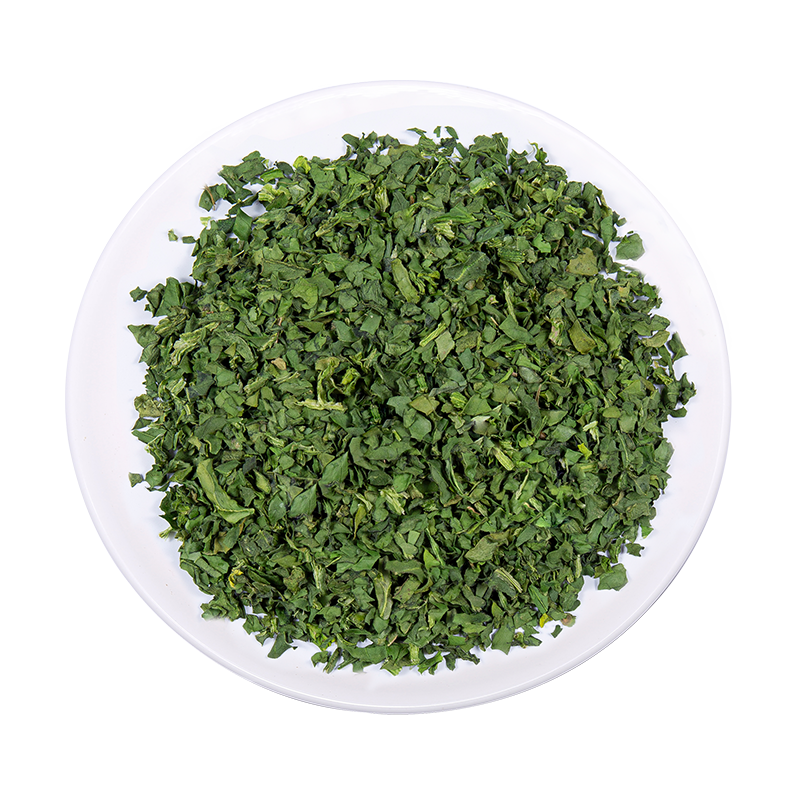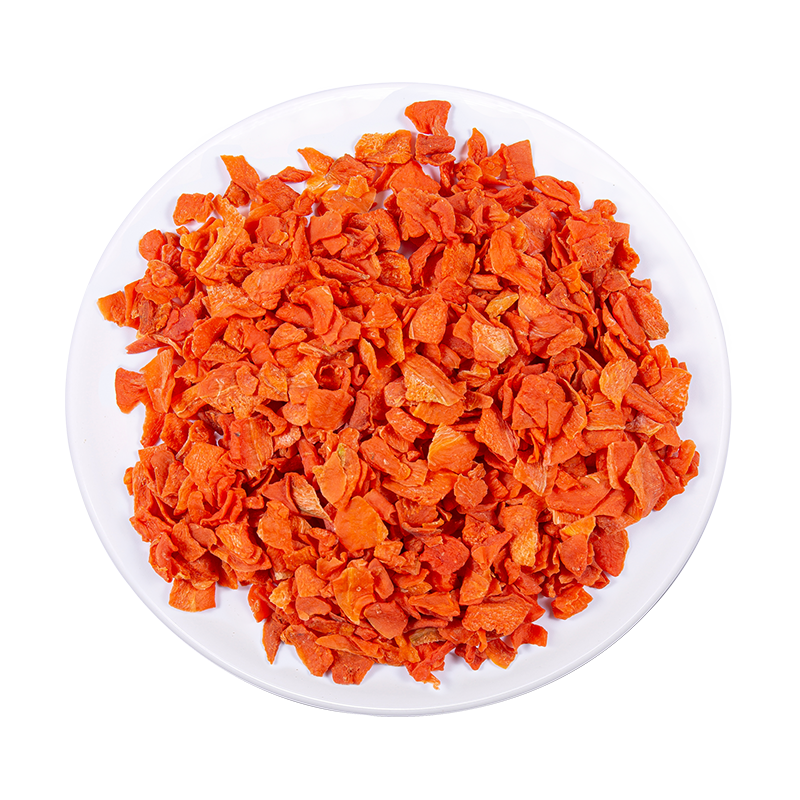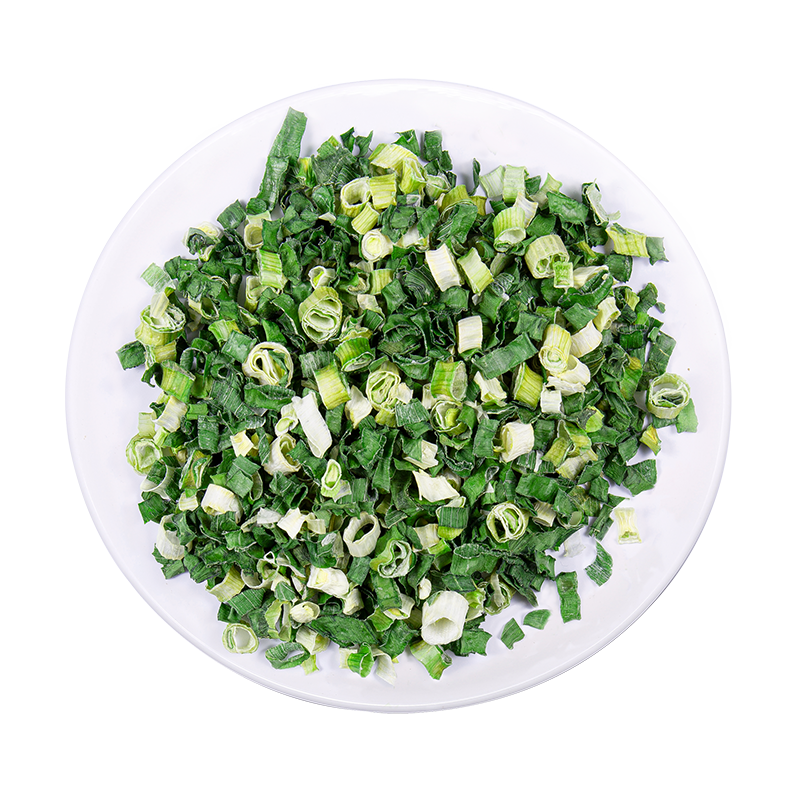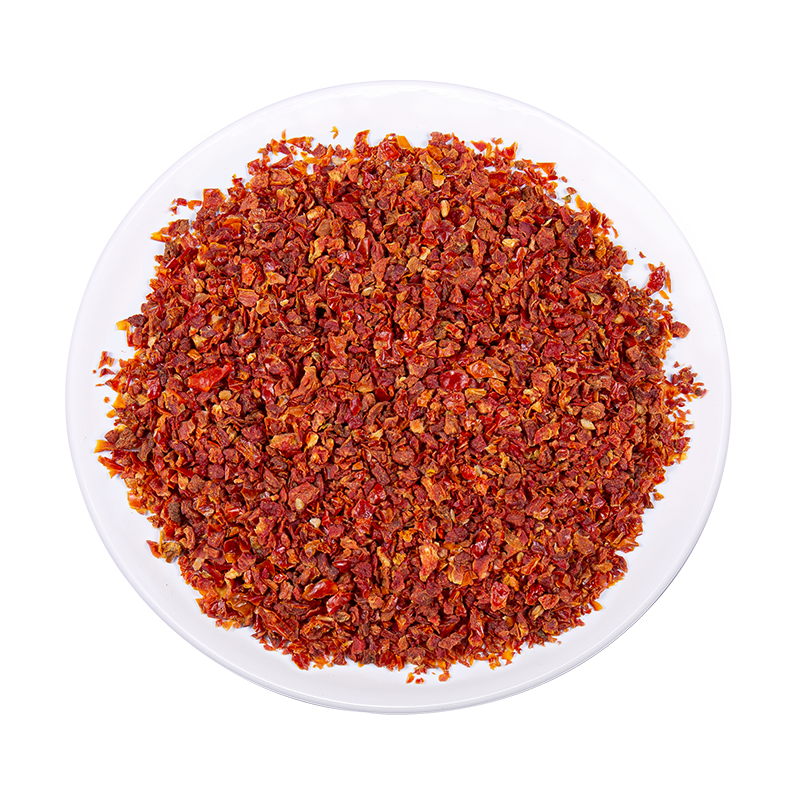Sep 22,2025
Airtight Containers
One of the most important factors in storing Dehydrated Green Pepper is preventing moisture from entering the packaging. Airtight containers are essential for keeping out air, humidity, and external contaminants. The right storage container ensures the peppers remain dry and safe from environmental elements that could cause degradation.
-
Glass Jars: Glass jars are an excellent choice for storing dehydrated foods due to their airtight seal, durability, and non-reactivity. Mason jars, which come with metal lids that can be tightly sealed, are particularly effective. Glass does not absorb moisture, making it an ideal material for long-term storage of Dehydrated Green Pepper.
-
Benefits: The transparency of glass also allows you to easily monitor the condition of the contents without opening the container, reducing the risk of exposure to moisture and air.
-
Considerations: Ensure the glass jar is completely dry before placing the peppers inside. Any residual moisture could lead to mold growth or spoilage.
-
-
Plastic Containers: Plastic containers, particularly those made from BPA-free materials, are also an excellent option. These containers are generally lighter than glass and often feature tight-fitting lids. When choosing plastic, ensure that the lid closes securely and that the container does not allow air to enter.
-
Benefits: Plastic containers are more portable and available in various sizes, making them suitable for both small-scale and bulk storage.
-
Considerations: Avoid using plastic containers with flimsy seals that can fail over time. Also, ensure they are placed in a cool, dark location, as sunlight can degrade the material.
-
-
Mylar Bags with Oxygen Absorbers: For the most effective long-term storage, Mylar bags with oxygen absorbers are highly recommended. Mylar bags are made from a durable, metallized polyester film that is excellent at blocking moisture, oxygen, and light—three factors that contribute to the degradation of dehydrated foods.
-
Benefits: When paired with oxygen absorbers, Mylar bags create a vacuum-like environment that helps prevent oxidation and mold growth. Oxygen absorbers remove the residual oxygen from the bag, further extending the shelf life of the Dehydrated Green Pepper.
-
Considerations: Ensure that the Mylar bags are sealed tightly using a heat sealer or vacuum sealer to eliminate air pockets. This is a crucial step for preserving the peppers over a long period.
-
Cool, Dry, and Dark Storage Conditions
Storing Dehydrated Green Pepper in a cool, dry, and dark location is paramount to ensuring it maintains its flavor and texture. Temperature, humidity, and light all play significant roles in the degradation process of dehydrated foods.
-
Temperature: The ideal storage temperature for Dehydrated Green Pepper is between 50°F and 70°F (10°C - 21°C). Excessive heat can accelerate the degradation of flavor, reduce nutrient content, and even cause the peppers to become too brittle. Additionally, heat can cause the peppers to release volatile oils, leading to loss of their characteristic aroma and flavor.
-
Considerations: Avoid placing the peppers near heat sources like stoves, ovens, or direct sunlight. Ideally, choose a location like a pantry, cupboard, or storage closet where the temperature is stable and cool.
-
-
Humidity: The level of humidity in the storage area is also a crucial factor. Dehydrated Green Pepper can easily absorb moisture from the air if stored in a humid environment, leading to mold growth, spoilage, or a change in texture. Relative humidity levels should be kept below 60%.
-
Considerations: Use a hygrometer to monitor the humidity levels in the storage area. If you live in a humid climate, consider using a dehumidifier or storing the peppers in a climate-controlled room to maintain ideal conditions.
-
-
Light: Light exposure can degrade the quality of Dehydrated Green Pepper over time, leading to the loss of color, flavor, and nutrients. UV rays from sunlight can cause the degradation of vitamins (particularly Vitamin C) and antioxidants.
-
Considerations: Store the peppers in opaque containers or in dark, cool places such as a pantry or cupboard. Ensure they are kept out of direct sunlight and away from bright artificial lighting.
-
Vacuum Sealing
Vacuum sealing is one of the best ways to extend the shelf life of Dehydrated Green Pepper by removing air and reducing the chance of oxidation and moisture exposure. Vacuum sealing helps keep the peppers fresh and prevents them from absorbing any moisture from the environment.
-
Vacuum-Sealed Bags: Using vacuum-sealed bags with a vacuum sealer machine is an excellent way to store Dehydrated Green Pepper long-term. The vacuum sealer removes almost all air from the bag, thereby preserving the peppers' quality for a longer time. This method is especially useful for larger batches of dehydrated peppers.
-
Benefits: Vacuum sealing significantly reduces the risk of mold growth and spoilage by eliminating the oxygen that bacteria and fungi need to thrive.
-
Considerations: Be sure to store vacuum-sealed bags in a cool, dark place. While the vacuum seal will prevent air from entering, the bags can still be punctured or torn if handled roughly.
-
Use of Desiccants
Desiccants such as silica gel packs can be used to further protect Dehydrated Green Pepper from moisture during storage. These moisture-absorbing packets help maintain a dry environment inside the container, preventing mold and spoilage.
-
Silica Gel Packets: When storing Dehydrated Green Pepper in airtight containers, place food-safe silica gel packs inside to absorb any residual moisture in the container.
-
Benefits: Silica gel is highly effective in absorbing moisture, ensuring that the dehydrated peppers remain in optimal storage conditions. This is especially helpful if you live in an area with high humidity.
-
Considerations: Ensure the desiccant packets are food-grade and safe for consumption. Replace them periodically, especially if you open the container frequently.
-
Avoid Frequent Opening of Storage Containers
Frequent exposure to air, humidity, and fluctuating temperatures can accelerate the degradation of Dehydrated Green Pepper. Therefore, it is important to minimize how often the storage containers are opened.
-
Store in Smaller Batches: To prevent repeatedly opening the main storage container, divide the Dehydrated Green Pepper into smaller portions. This way, only the smaller portions are exposed to air and moisture each time, keeping the rest of the batch protected.
-
Benefits: Smaller batches are easier to use within a short period and prevent the entire stock from being compromised by environmental exposure.
-
-
Use Smaller Containers for Regular Access: If you need to access the dehydrated peppers frequently, consider using small, airtight containers for everyday use, while keeping the bulk supply sealed in larger, more protective storage.


 English
English Français
Français Español
Español









